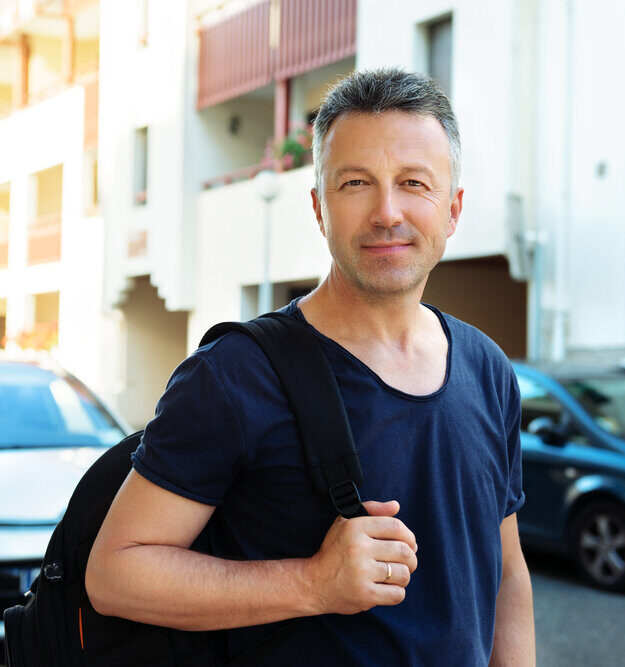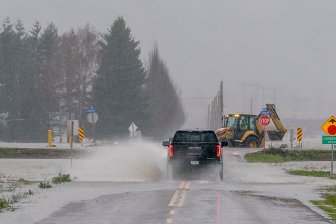Britain, Germany and Italy on Saturday detected cases of the new variant of the coronavirus Omicron and British Prime Minister Boris Johnson announced new measures to contain the virus, as more countries imposed restrictions on trips from southern Africa.
The discovery of the variant sparked global concern, a wave of travel bans or restrictions and a massive sell-off in financial markets on Friday, with investors worried Omicron could block a global recovery after the nearly two-year pandemic. .
Israel has said it will ban all foreigners from entering the country and reintroduce anti-terrorism phone tracking technology to contain the spread of the variant.

The two linked cases of the new variant detected in Britain were linked to a trip to southern Africa, UK Health Minister Sajid Javid said.
Johnson introduced measures that included stricter testing rules for people arriving in the country, but that did not limit social activities other than wearing a mask in some settings.
“We will require anyone entering the UK to have a PCR test by the end of the second day after arriving and self-isolate until they test negative,” Johnson said during ‘a press conference.

Read more:
Canada Tackles Omicron COVID-19 Variant. Experts say it’s probably “already here”
People who had come into contact with people who tested positive for a suspected case of Omicron would have to self-isolate for 10 days and the government would tighten the rules on wearing face coverings, Johnson said, adding that the steps would be reviewed in three weeks. .
The Bavarian German state health ministry has also announced two confirmed cases of the variant. The two entered Germany at Munich airport on November 24, before Germany designated South Africa as a variant virus zone, and are now isolating themselves, the ministry said, indicating without explicitly specifying that people had traveled from South Africa.
In Italy, the National Institute of Health said a case of the new variant had been detected in Milan in a person from Mozambique.
Czech health officials have also said they are examining a suspected variant case in a person who has spent time in Namibia.

Omicron, labeled a ‘variant of concern’ by the World Health Organization, is potentially more contagious than previous variants of the disease, although experts are not yet sure whether it will cause more or less COVID-19 severe compared to other strains.
England’s chief medical officer Chris Witty told the same press conference as Johnson that there was still a lot of uncertainty around Omicron, but “there is a reasonable chance that at least there is some degree of vaccine escape with this variant “.
The variant was first discovered in South Africa and has also since been detected in Belgium, Botswana, Israel and Hong Kong.
Dutch authorities said 61 of some 600 people who arrived in Amsterdam on two flights from South Africa on Friday had tested positive for the coronavirus. Health officials were running further tests to see if these cases involved the new variant.
A passenger who arrived from South Africa on Friday, Dutch photographer Paula Zimmerman, said she had tested negative but was impatient for the days to come.
“I was told they expected a lot more people to test positive after five days. It’s a little scary the idea that you’ve been on a plane with a lot of people who tested positive, ”she said.
Read more:
Dutch find 61 cases of COVID-19 on flight in South Africa, believe some are Omicron variant
Financial markets plunged on Friday, particularly shares of airlines and others in the travel sector, with investors fearing the variant could cause a further surge in the pandemic. Oil prices have fallen by about $ 10 a barrel.
It could take scientists weeks to fully understand the mutations in the variant and whether existing vaccines and treatments are effective against it.
Although epidemiologists say travel restrictions may be too late to prevent Omicron from circulating around the world, many countries around the world – including the United States, Brazil, Canada, and countries in the Union Europe – on Friday announced travel bans or restrictions in southern Africa.
The US Centers for Disease Control and Prevention (CDC) and the State Department on Saturday added travel restrictions previously announced by Washington, advising against travel to eight countries in southern Africa.
US Vice President Kamala Harris told reporters on Saturday that the administration would take it “one step at a time,” when asked about the additional travel restrictions. “So far we have done what we feel is necessary,” said Harris.
Also on Saturday, Australia said it would ban entry to non-nationals who have visited nine southern African countries and require 14-day supervised quarantines for Australian citizens returning from there.

Read more:
Omicron COVID-19 variant leads to travel restrictions, containment efforts
Japan and Britain have said they are extending travel restrictions to more African countries, while South Korea, Sri Lanka, Thailand, Oman, Kuwait and Hungary have announced new travel restrictions. trip.
South Africa fears the restrictions will hurt tourism and other sectors of its economy, the Foreign Ministry said on Saturday, adding that the government was engaging with countries that have imposed travel bans on South Africa. persuade to reconsider their decision.
Omicron emerged as many countries in Europe are already battling an increase in COVID-19 infections, and some have reintroduced restrictions on social activities to try to stop the spread. Austria and Slovakia went into lockdown.
The new variant also highlighted the disparities in the extent to which the world’s population is vaccinated. Even though many developed countries administer third-dose boosters, less than 7% of people in low-income countries have received their first injection of COVID-19, according to medical and human rights groups.
Read more:
‘Huge concern’: South African scientists scramble to fight spread of Omicron variant
Seth Berkley, CEO of the GAVI Vaccine Alliance which, along with the WHO, co-leads the COVAX initiative to push for equitable distribution of vaccines, said this was essential to prevent the emergence of more variants of the coronavirus. .
“Although we still need to know more about Omicron, we know that until a large part of the world’s population is vaccinated, variants will continue to appear and the pandemic will continue to extend,” a- he said in a statement to Reuters. .
“We will only prevent the emergence of variants if we are able to protect the entire world population, not just the wealthiest parts.” “
(Reporting by Toby Sterling, Bart H. Meijer, Costas Pitas, Promit Mukerjee, Stephanie Nebehay, Madeline Chambers, Robert Muller and Reuters Offices Written by Frances Kerry Editing by Alexander Smith and Nick Macfie)

“Amateur web enthusiast. Award-winning creator. Extreme music expert. Wannabe analyst. Organizer. Hipster-friendly tv scholar. Twitter guru.”


